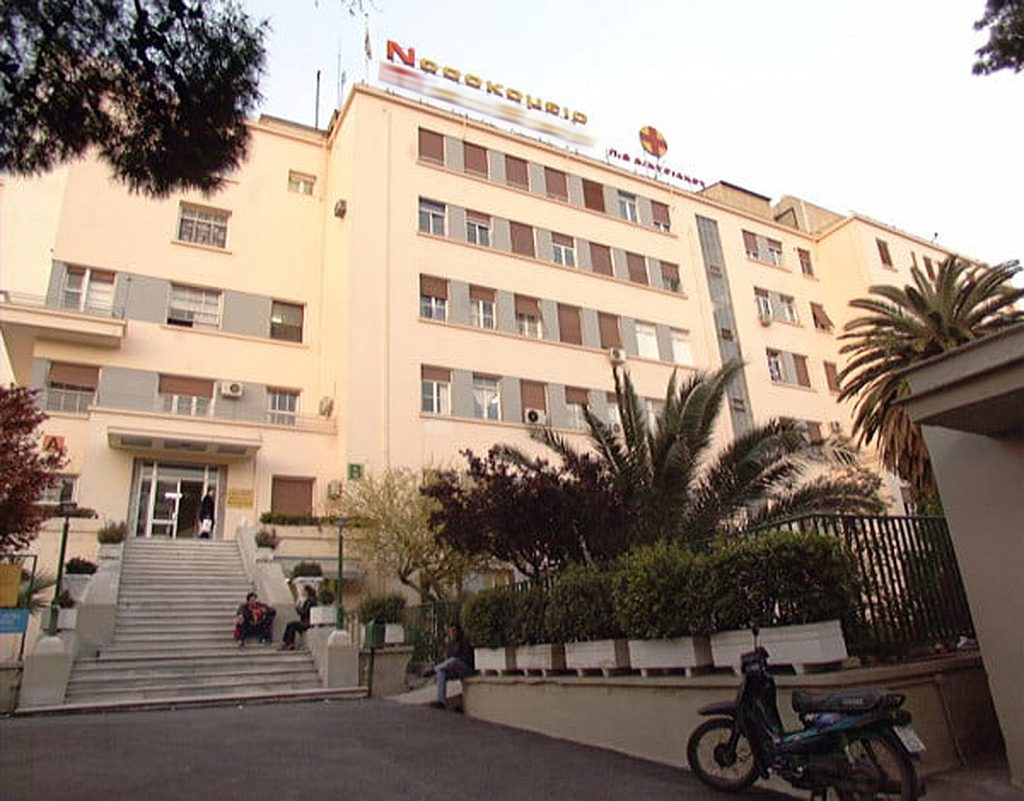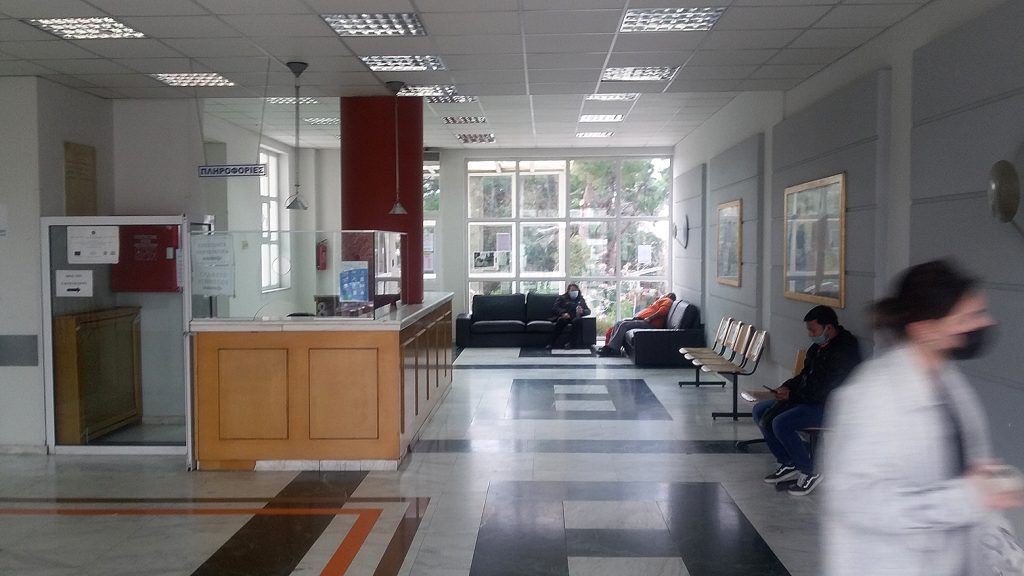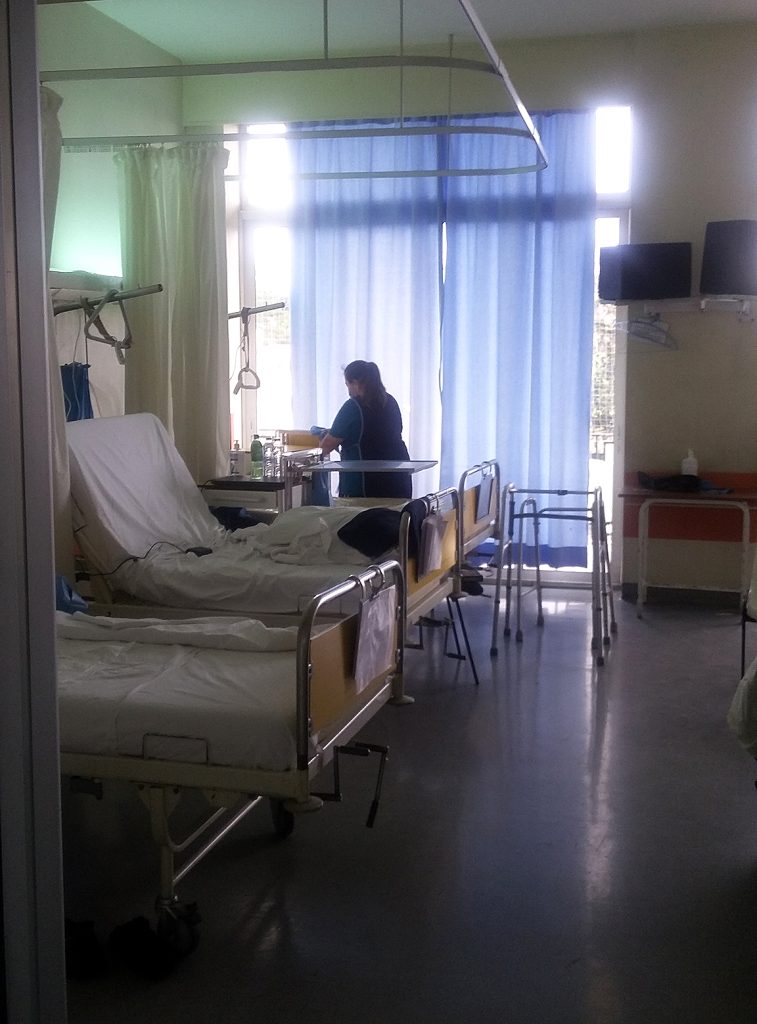By Kathy Karageorgiou
Negative stories abound regarding the Greek public hospital system. They resonate as far as Australia, often stemming from ‘a friend told a friend’ type anecdotes, or from lived experiences by relatives in Greece.
Being a Greek Australian who’s lived in Greece since 2000, I’ve accrued quite a bit of exposure, particularly recently, to the Greek public hospital system of Athens by liaising with six hospitals. This experience came as the primary caretaker of a family friend who suffered ill health in the past two years, and with one of my sons.
Our 69-year-old friend, Fotis, took a fall in late 2021, resulting in my husband and I rushing to his home and calling an ambulance. When the ambulance service told us that it could take ‘a while’ for them to arrive, we opted for one of the many private ambulances (costing around 50 euros).
Once at the hospital, we waited – not exactly in the ubiquitous hallway, but in a larger area outside the orthopaedic doctors offices. Fotis was seen within 10 minutes. X-rays confirmed a broken hip, resulting in immediate admission to a ward for surgery the next day.

Once Fotis was settled in his clean, comfortable, albeit ‘dated’ room comprising three other beds – in the older part of the hospital – the orthopaedic surgeon took me into his office to ‘talk.’
“Oh no,” I thought. “This is where things may get awkward.” I was hoping the surgeon would not ask me for the commonly referred to ‘fakelaki” – the envelope with money for the doctor to “properly operate and look after the patient” as many relatives and friends here tell.
I shall detract momentarily to tell of my initial Greek public hospital experience when I arrived in 2000, and when months later my youngest son needed hernia surgery. I had repeatedly heard that the Greek public hospital system was a mess, and that if you don’t give the doctors the ‘fakelaki’ then you’re… “left for dead.”
As a down-to-earth Aussie, I decided days before the surgery to ask the doctor straight out, how much money he wanted or expected to operate on my son. I was tired and felt pending sadness thinking, “here we are – here’s the real Greece, and who am I to be so naïve and think I can ‘make it’ here, with an Australian husband and two young sons, with my parents and brother back in Australia.”
I subsequently sat or slumped down into a chair across from the doctor’s desk and in a weary, softly spoken and disappointed way said something to the effect of: “With all due respect , out there – in Greek society – it is said that doctors expect ‘fakelakia’ in order to secure decent health care, and so here I am, basically shopping around – with you as my first stop, to see how much you want.”

I recall the doctor solemnly telling me: “This is not how we operate [pardon the pun], here in Greece! I do not expect a cent [drachmas then], to operate on your son. I swore to our ancestors’ Hippocratic oath, and I will look after your son, to the utmost of my ability, before, during and after the surgery.”
My eyes welled up (and they still do), with the relief and vindication I felt for loving and having faith in Greeks.
Notwithstanding, the surgery went excellently, though I did notice that in the ward before the surgery, a conversation amongst mothers of how much they were going to “pay” the surgeons. Furthermore, my aunt who came to the hospital with me for moral support, shoved drachma notes into the operating theatre attendant’s jacket, while we were in the elevator, stating: “for a little coffee or beer later.”
Back to our friend Fotis. His surgeon sat me down in his office to tell me that he noticed a more than suspicious shadow on Fotis’ lung x-ray, which he had discussed briefly with a lung specialist, and “it seems like it’s lung cancer – 80% – and he must get it checked after the hip surgery.”

We did get it checked and it was cancer. There was a bronchoscopy involved at another hospital. “Don’t tell him yet” advised the doctor, “until the relevant diagnostics see how far it’s spread.”
Then, while at home awaiting results, Fotis contracted COVID and due to feeling very sick, went to a COVID ward at another Greek public hospital. He was there for six days and recovered. Finally, he went to the Greek public cancer/oncology hospital and saw an oncologist, had lobectomy surgery, followed by sessions of chemotherapy, and constant scans and blood tests: all for free or at a minimal price due to government subsidies.
My husband and I were with Fotis all the way – liaising with nurses, doctors, etc. They were all patient, polite and kind. None of them asked for a ‘fakelaki’. The closest potential misinterpretation of asking or hinting, may have been when a doctor complained to me how badly paid they are in the public system at 1,300 euros per month.
Appearance wise, some of the facilities in Greek public hospitals are dated, but the hospitals are very clean and well ventilated, with fresh air from open windows as well. People may criticise the Greek public hospital system, but I am actually in awe of it – of the staff; especially the excellent doctors, the administration, the security, the buildings. No system is perfect and yes, they need more, and better paid staff, but overall… Bravo, from me. By the way, both my son and Fotis are in good health!

